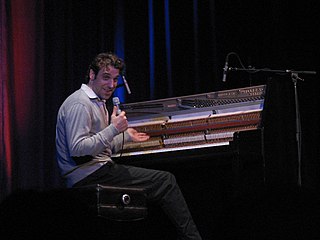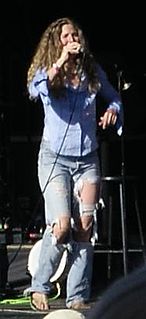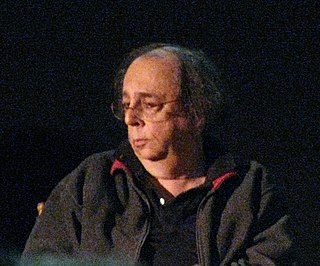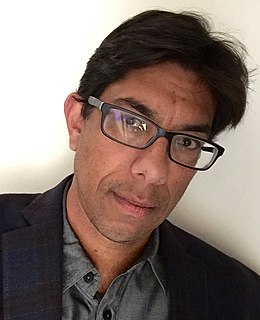A Quote by Chilly Gonzales
To me, a performance is a military operation; it requires so much planning, and then ripping up the plan the minute you get there because you have no idea what the audience is feeling. I'm very much an entertainer, and sensitive to the audience's perception of me. I often have to do unexpected things, even for myself.
Related Quotes
I make some movies for myself. I do that sometimes when the subject matter is very sensitive and very personal and I really can't imagine that I'm an audience member. I would lose myself too much if I thought of myself as the audience. There are other types of genre films that I need to be able to direct from the audience, to be right next to you watching the picture being made.
It's okay to embark on writing because you think it will get you love. At least it gets you going, but it doesn't last. After a while you realize that no one cares that much. Then you find another reason: money. You can dream on that one while the bills pile up. Then you think: "Well, I'm the sensitive type. I have to express myself." Do me a favor. Don't be so sensitive. Be tough. It will get you further along when you get rejected. Finally, you just do it because you happen to like it.
Donald Trump in Philadelphia, and he's delivering a very substantive speech on military preparedness, the status of the current military. He detailed the deterioration of the U.S. military in the past eight years and explained how he's going to rebuild it and why we need to, and it's a very tough audience. It's an expressly military audience, and they are of course listening for any sign that he's not really genuine here. I think, knocking this out of the park as far as that audience is concerned.
The difference when I'm writing a story versus writing a joke is that writing a joke is so much more about the structure and it's less about the conversation. To me, the thing that I love about stand-up is the intimacy between performer and audience.To get it even more conversational was something that really appealed to me and that I really enjoyed doing. My early experiments with it, with just telling a story from my life on stage, it was so satisfying to do. And seemingly for the audience as well. It's a different thing, and it's a different feeling and a different vibe.
It's possible I'm a weird person, you know, and if I could only write for people who are like me, I wouldn't have any audience at all. Ultimately, I'm my audience. I'm writing stories for myself. I don't have kids of my own, and I don't hang around kids all that much. Maybe that puts me at a disadvantage.
We played a show the other week at this festival and it was an audience that I'd never normally play in front of. That's one the greatest things about festivals: you don't always get your audience, you get people who just pop in out of curiosity. The reaction was amazing; there were people dancing, which we've never had, I guess because the message is pretty powerful and the performance is a lot more visceral than it has been previously. The audiences seem to be reacting to that really well and it's a wonderful thing, because at a performance you really bounce off your audience.



































